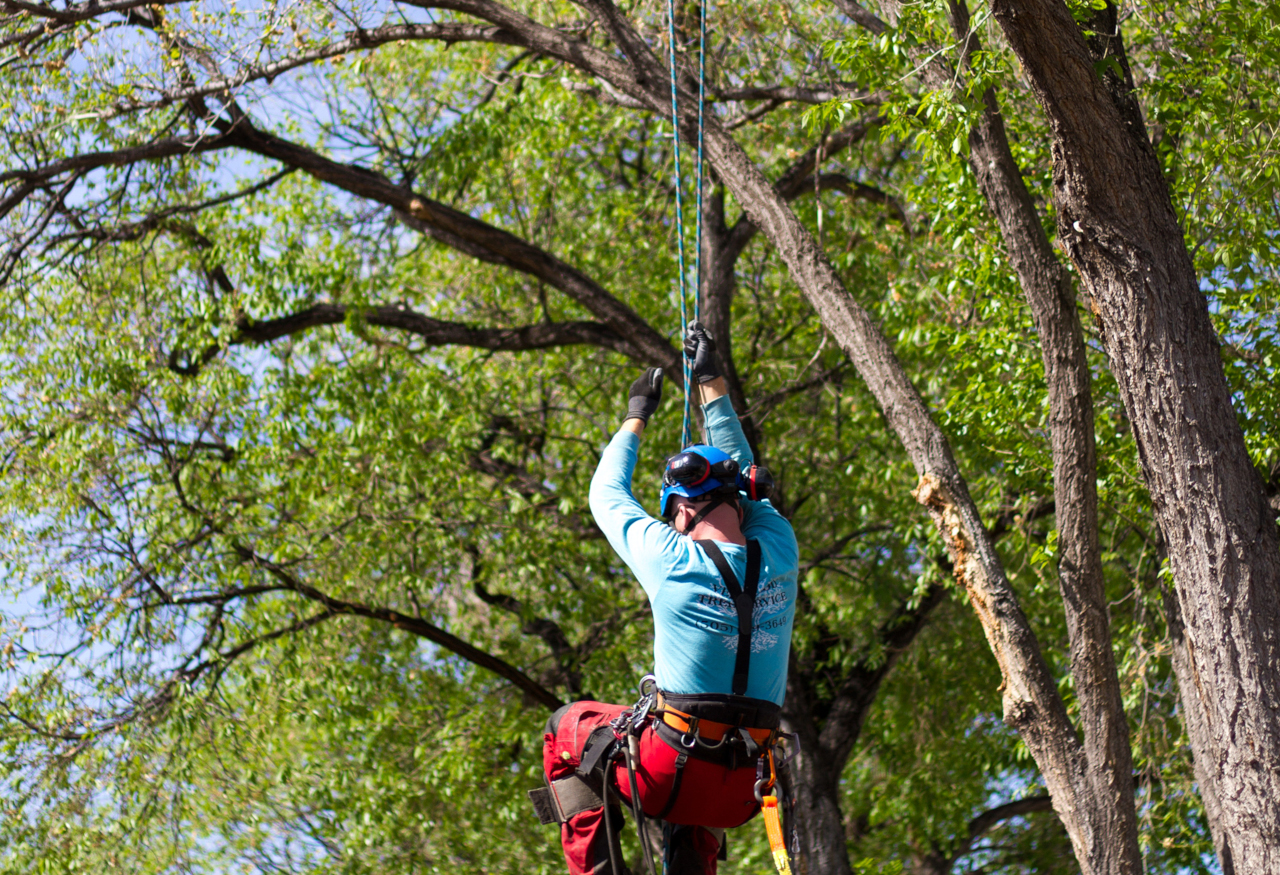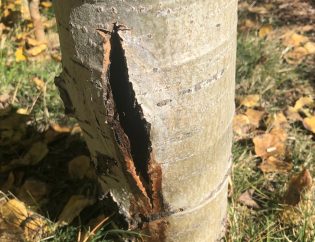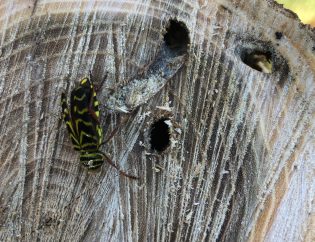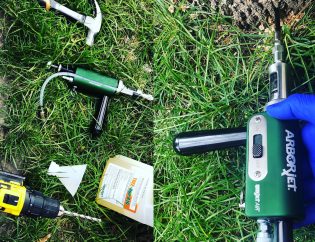
Arborists specialize in the care of individual trees. They are knowledgeable about the needs of trees and are trained and equipped to provide proper care.
Hiring an arborist is a decision that should not be taken lightly. Proper tree care is an investment that can lead to substantial returns. Well cared-for trees are attractive and can add considerable value to your property. Poorly maintained trees can be a significant liability. Pruning or removing trees, especially large trees, can be dangerous work. Tree work should be done only by those trained and equipped to work safely in trees.
Services That Arborists Can Provide
- Pruning
An arborist can determine the type of pruning necessary to maintain or improve the health, appearance, and safety of trees. Pruning techniques include removing limbs that:- interfere with utilities or structures
- obstruct streets or sidewalks
- are dead, weak, or decayed and pose unacceptable risk
- are diseased or insect-infested
- have been damaged by storms
- will increase light penetration and reduce wind resistance within the canopy upon removal (thinning)Other pruning techniques are used to maintain proper structure in young trees, improve tree shape or form, and reduce the likelihood of future damage during storm events.
- Tree Removal
Although tree removal is a last resort, there are circumstances when it is necessary. An arborist can help decide whether a tree should be removed.Removal is recommended when the tree is:
-
- dead or dying
- considered an unacceptable risk
- causing an obstruction that is impossible to correct through pruning
- crowding and causing harm to other, more desirable trees
- to be replaced by a more suitable specimen
- located in an area where new construction requires removal
- Emergency Tree Care
Storms may cause limbs or entire trees to fall, often landing on other trees, structures, or cars. The weight of storm-damaged trees is great, and they can be dangerous to remove or trim. An arborist can assist in performing the job in a safe manner, while reducing further risk of damage to property. - Planting
Some arborists plant trees, and most can recommend species that are appropriate for a particular location. The wrong tree in the wrong location will lead to future problems as a result of limited growing space, insects, diseases, or poor growth. - Other Services
Many arborists also provide a variety of other tree care services, including:
-
- Plant Health Care or preventive maintenance to keep trees in good health while reducing any insect, disease, or site problems
- fertilization and soil modification for improved tree health
- cabling or bracing for added support to branches with weak attachments
- soil aeration to improve root growth
- installation of lightning protection systems
- applications to manage certain insect and disease problems
- consulting and legal expert services relating to trees
Selecting the Right Arborist for the Job
- Check for membership in professional organizations such as the International Society of Arboriculture (ISA), the Tree Care Industry Association (TCIA), or the American Society of Consulting Arborists (ASCA). Such membership demonstrates a willingness on the part of the arborist to stay up-to-date on the latest techniques and information.
- Check for ISA arborist certification.
ISA Certified Arborists are experienced professionals who have passed an extensive examination covering all aspects of tree care. - Ask for proof of insurance and then phone the insurance company if you are not satisfied.
A reputable arborist carries personal and property damage insurance as well as workers’ compensation insurance. - Check for necessary permits and licenses.
Some governmental agencies require contractors to apply for permits and/or to apply for a license before they are able to work. - Ask for references to find out where the company has done work similar to what you are requesting.
Don’t hesitate to check references or visit other work sites where the company or individual has done tree work. - Get more than one estimate, unless you know and are comfortable with the arborist.
You may have to pay for the estimates, and it will take more time, but it will be worth the investment. - Don’t always accept the low bid.
You should examine the credentials and the written specifications of the firms that submitted bids and determine the best combination of price, work to be done, skill, and professionalism to protect your substantial investment. - Be wary of individuals who go door-to-door and offer bargains for performing tree work.
Most reputable companies are too busy to solicit work in this manner. - Keep in mind that good arborists will perform only industry-accepted practices.
For example, practices such as topping a tree, removing an excessive amount of live wood, using climbing spikes on trees that are not being removed, and removing or disfiguring living trees without just cause are improper practices and violate industry standards. - Get it in writing.
Most reputable arborists have their clients sign a contract. Be sure to read the contract carefully. Don’t be afraid to ask questions, such as:- What Is a Certified Arborist?
An arborist by definition is an individual who is trained in the art and science of planting, caring for, and maintaining individual trees. ISA arborist certification is a nongovernmental, voluntary process by which individuals can document their base of knowledge.It operates without mandate of law and is an internal, self-regulating device administered by the International Society of Arboriculture.Certification provides a measurable assessment of an individual’s knowledge and competence required to provide proper tree care.Certification is not a measure of standards of practice. Certification can attest to the tree knowledge of an individual but cannot guarantee or ensure quality performance.Certified Arborists are individuals who have achieved a level of knowledge in the art and science of tree care through experience and by passing a comprehensive examination developed by some of the nation’s leading experts on tree care.
Certified Arborists must also continue their education to maintain their certification. Therefore, they are more likely to be up-to-date on the latest techniques in arboriculture.
- What Is a Certified Arborist?
- Be an Informed Consumer.
One of the best methods to use in choosing an arborist is to educate yourself about some of the basic principles of tree care.


